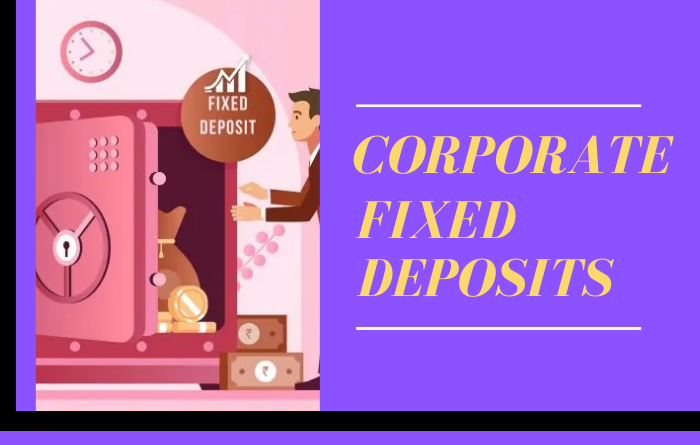How to Maximize Your Returns by Corporate Fixed Deposits and Bonds?
You must have heard of the term fixed deposits and their benefits. But are you aware of the term Corporate Fixed Deposits?
In India, the most popular investment option is a fixed deposit. RBI allows specified corporates and NBFCs to accept deposits with a set interest rate and term, just like banks. These are known as company or corporate fixed deposits.
Corporate FDs help you protect your financial future with set, predictable returns even in the times of significant market volatility and unpredictable returns. Investors have the option of earning a regular income with the pay-out option or building up money with the cumulative option.
Benefits of Corporate Fixed Deposits
- Greater Returns: When compared to bank FDs, corporate FDs offer higher returns.
- Flexibility: Choose from a number of tenures for Corporate FDs, including monthly, quarterly, half-yearly, and yearly.
- Liquidity: Corporate FDs offer superior liquidity and have a shorter lock-in time than Bank FDs.
- Early Withdrawals: Choosing premature withdrawal in an FD allows depositors to take their money out and shutter the account before the term is up.
- Safety: Credit rating firms rigorously evaluate company deposits for security. These organizations examine whether these FDs are stable and safe.
What are Corporate Bonds?
Debt instruments issued by private and public companies are known as corporate bonds. Corporations issue bonds to obtain funds for a variety of reasons. When you buy a corporate bond, you’re lending money to the bond’s “issuer,” or the firm that issued it. The corporation agrees to refund the money, often called “principal,” on a set maturity date in exchange. The corporation usually pays you a stated rate of interest until that date, which is commonly semi-annual. In contrast to purchasing the firm’s equity stock, a corporate bond provides an IOU from the corporation but does not provide an ownership stake in the issuing company.
How to maximize your returns on Corporate Fixed Deposits and and Bonds?
Develop your investment strategy: Investing in FDs and bonds alone won’t get you significant returns because you’ll need to know how to properly manage your deposits. When your deposit matures, you should think about reinvesting, especially because many financial companies offer greater FD interest rates when you renew your investment.
Be punctual at filing your returns: It’s critical to file your returns on time and to keep up with the latest changes and updates as per the tax laws and returns.
Create a Fixed Deposit Ladder: Get the most out of your money by spreading a single corpus across many FDs of varying tenors. This perspective might assist you in viewing fixed deposits as a financial backup that can help you meet your financial obligations with ease. It also allows you to avail tax advantages by having numerous maturity dates. You can also take help from the investment consultants to pick the right product.
Choose a cumulative plan: Cumulative Corporate Fixed Deposits and Bonds allow you to expand your savings over time by taking advantage of compounding interest. Non-cumulative schemes, on the other hand, provide monthly payouts, making them ideal for retirees looking for a steady stream of income.
Avoid risks
Take care of the following risk factors while considering investments in corporate fixed deposits and bonds. . Check to see if the company has been paying its shareholders interest on a regular basis. The companies’ financial sheets have proven a steady track record of earnings for at least three years. With the increasing amount of start-ups on the market, be sure the company has been around for at least 5 years. Check to see if they’re providing reasonable returns (2-3 percent more than a bank FD).
We provide well-researched advice on the bond issuing company at RURASH. As the premier investing firm with UHNI and NRI portfolios, we ensure that our clients’ funds are solely invested in bonds with AAA – A credit ratings from approved credit rating agencies.
Conclusion
Corporate Fixed Deposits could be an ideal choice for higher returns. With a little research, individuals can find out which corporation is offering the highest returns on fixed deposits. On the other hand, bonds are a type of debt instrument that carry a minimal level of risk.
If you’re heavily involved in equities, investing in fixed deposits and bonds can help you diversify the portfolio, offer perfect asset allocation and protect your portfolio from market volatility. Bonds and Corporate Fixed Deposits are also the best investment options for retirement planning.



